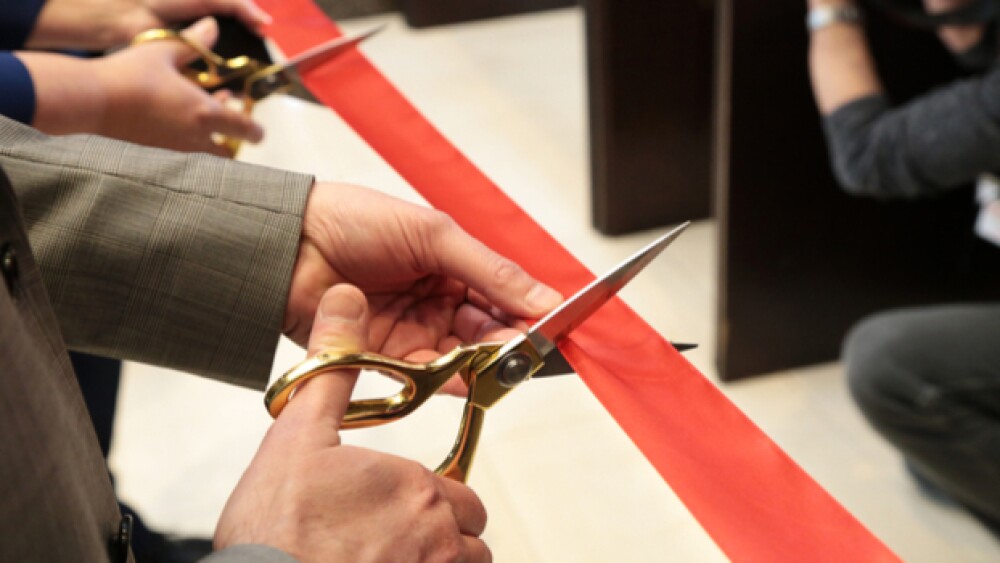Sirion Biotech International threw a Bavarian-themed grand opening party at the Forsythe Institute on Feb. 1. The new headquarters are in Cambridge, Mass and currently have five employees.
Sirion Biotech International, a wholly-owned subsidiary of Germany’s SIRION Biotech GmbH, threw a Bavarian-themed grand opening party at the Forsythe Institute on Feb. 1. The new headquarters are in Cambridge, Mass. The parent company has 30 staffers and the new site currently has five employees.
Sirion provides custom engineering and manufacturing services of viral vectors for the life sciences industry. With the currently growing acceptance of gene therapies into the marketplace, this is likely to be a booming business. The payloads of gene therapies are typically loaded into vectors to be delivered into the cells being treated.
In particular, Sirion Biotech’s LentiBOOST transduction reagent is used to improve cell transductions in clinical trials. It also has NextGen AAV capsid evolution, which refers to adeno-associated virus and the capsid is the virus’s protein shell.
“Our transduction and manufacturing efficiencies are critical issues in gene therapy, Sirion’s viral vectors are essential to the success of their partnering companies,” stated Dieter Lingelbach, Sirion Biotech’s chief operating officer. “Since two-thirds of Sirion’s revenue already comes from U.S. customers and partners, opening an office in a Life Science hub like Cambridge, Massachusetts further demonstrates our commitment to supporting existing customers and further expanding into the U.S. market.”
Other companies in Cambridge that are prominently working with gene therapies include Biogen, bluebird bio, Intellia Therapeutics and Voyager Therapeutics.
According to Allied Market Research, the gene therapies market is projected to grow 33 percent yearly, hitting $4.4 billion worldwide by 2023. Based on its various contracts and expected milestone payments, Sirion expects to hit $50 million in annual revenue in the next couple of years.
“This is opening an avenue to move some decision-making into Cambridge,” Lingelbach told the Boston Business Journal. “We’ve got high regard for how Massachusetts is developing (the gene therapy) industry.”
One of the big bottlenecks in gene therapy is manufacturing. Although there is a growing demand for cell and gene therapies—witness approved cell-based therapies like CAR-T treatments like Novartis’ Kymriah or gene therapies like Spark Therapeutics’ Luxturna—manufacturing capacities aren’t quite keeping up with the demand. LabioTech recently noted, “To make gene therapy available for more widespread use, cost of goods must go down—by expanding production capacity, introducing scalable production methods, and tailoring manufacturing systems to viral vectors.”
Lingelbach indicates that the demand has caused lengthy production delays. Some companies develop their viral vectors in-house, but others make deals with academic institutions like UMass Medical School and the University of Pennsylvania. Companies like Sirion, StrideBio, in North Carolina, and Regenxbio, in Maryland, license tools and production capabilities.
Just ahead of the grand opening, Sirion inked deals with Boston-based Orchard Therapeutics and San Francisco-based Denali Therapeutics. The company indicates it is currently negotiating a deal with a U.S. biotech company focused on hemophilia therapies and expects to launch five more partnerships in the next two years.
It also plans to grow Sirion’s current U.S. business, which makes up 60 percent of its business. But, Lingelbach told the Boston Business Journal, “Sixty percent is just the tip of the iceberg.”





